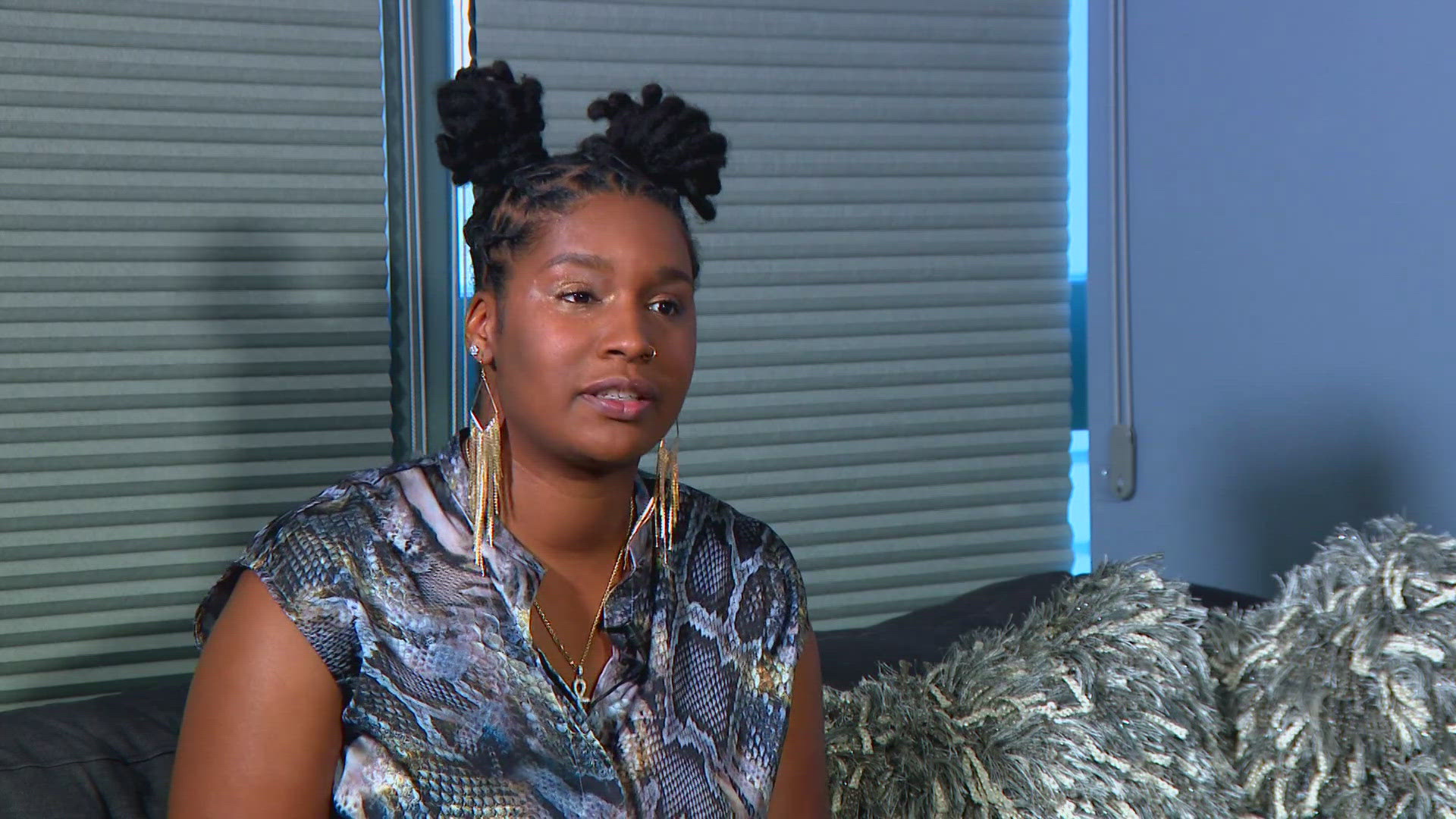WASHINGTON — Shehariah Johnson is a domestic violence survivor, who is sharing her story in hopes of helping others.
She told WUSA9, she was stabbed by her boyfriend more than 17 times, in 2015, as she attempted to escape the abusive relationship. She told us, she was stabbed in the back of her head, neck, and spine.
She spent months in the hospital and was left with scars, and wounds that have changed her life forever.
“My brain is permanently rewired. I’m traumatized and it’s something I can’t get away from." Johnson, said.
According to the DC Coalition Against Domestic Violence 39% of women and 25% of men in DC will be a victim of domestic, sexual or psychological violence at some point in their lifetime.
The organization helps thousands of adults and children in the District, experiencing domestic violence and the local organizations that serve them.
“Our member programs are past capacity. They cannot meet the need because the need is so great. The rate of violence isn’t decreasing either,” Dawn Dalton, Executive Director, said.
The Executive Director said they've also been working with DC public schools to provide prevention education inside the classroom, grades K-12.
“Often when we think of prevention we think about how to help someone not become a victim. I also feel it’s important we help someone not become a perpetrator because that’s the way we will create change,” Dalton, said.
Johnson now runs a non-profit to help DV survivors through art and holistic healing.
“I started it to give people a voice to express things that are hard to verbally say." Johnson said.
She encourages victims to seek help and have an escape plan.
"My hope is for people to know how serious and how prevalent this is. People think it can’t happen because of what they have or what kind of work they do but it can happen to all of us." Johnson said.
Common signs of abusive behavior in a partner include:
- Telling you that you never do anything right.
- Showing extreme jealousy of your friends or time spent away from them.
- Preventing or discouraging you from spending time with others, particularly friends, family members, or peers.
- Insulting, demeaning, or shaming you, especially in front of other people.
- Preventing you from making your own decisions, including about working or attending school.
- Controlling finances in the household without discussion, such as taking your money or refusing to provide money for necessary expenses.
- Pressuring you to have sex or perform sexual acts you’re not comfortable with.
- Pressuring you to use drugs or alcohol.
- Intimidating you through threatening looks or actions.
- Insulting your parenting or threatening to harm or take away your children or pets.
- Intimidating you with weapons like guns, knives, bats, or mace.
- Destroying your belongings or your home.
If you or someone you know needs help, the DC Victim Hotline is available for all crime victims in the District of Columbia. The hotline number is 844-4-HELP-DC (844-443-5732) and is operational 24/7.

